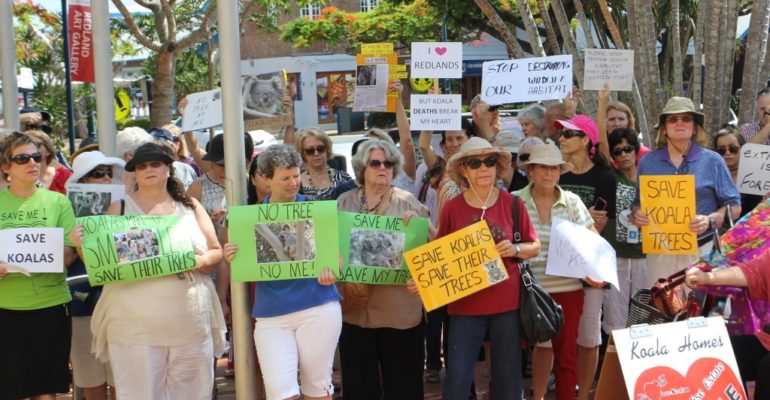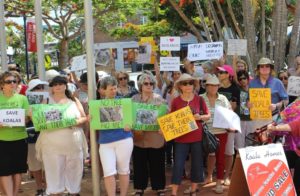

Former Planning Minister Jeff Seeney authored the draft planning Bills now submitted to Parliament as a Private Members Bill.
Statutory land use planning has long been a contest between proponents of development and objectors (often whole communities). All sides are wanting greater certainty from the planning and development process.
In an unusual turn of events a Queensland Parliamentary Committee is considering a planning bill introduced as a private Members’ Bill by the shadow planning spokesperson, Tim Nicholls. This draft legislation is a recyled version of the LNP’s bills which were in the committee stage but lapsed with the calling of the State election in January.
Redlands2030 will be making a submission (copy below) to the Committee by the deadline of 13 July, 4:00 pm. We encourage others to have your say also.
Planning frameworks in abundance!
The LNP’s election loss would normally have been the end of their proposed legislation especially since the new Government is tackling planning reform in its own right, under the auspices of the ‘Better Planning for Queensland’ directions paper (“the directions paper“).
So, at this time, the community and Parliament are faced with two competing planning frameworks. But there are differences between the two approaches. The Bills introduced by Mr Nicholls were orchestrated by Mr Seeney and it would be fair to say that few (if any) community groups were enamoured with his approach. In fact, the hubris of its approach to planning was a major caused the demise of the LNP Government. By continuing with the previous Bills, Mr Nicholls is inviting judgement that the LNP has not listened to the people of Queensland.
The sniping between the Government and the Opposition about planning and planning reform has become a tiresome spiral to the bottom in terms of planning outcomes, certainty and the protection or delivery of outcomes needed to sustain lifestyle, quality of life, livability and sustainability.
ALP planning reform

Deputy Premier and Planning Minister Jackie Trad…wants Better Planning for Queensland…the bar is set very low!
Submissions on the ALP Governments Directions Paper are invited until 31 July 2015. The intention outlined in the Directions Paper is embedded in the title i.e. “Better Planning for Queensland” ….surely this is self evident short hand.
The lack of real vision is probably evidenced in this title. Redlands2030 examined the early rhetoric, “Will Labors Directions fix planning laws?” and while there are some nice words in the Directions Paper the jury is still out as to how far the reforms will go in meeting the ALPs planning policy platform. Redlands2030 has called for comment on the Directions Paper and a submission will be collated prior to the 31 July deadline.
LNP planning reform
A competent statutory land use planning system has eluded successive Queensland Governments. In August the Deputy Premier and Minister for Planning (Jeff Seeney) announced public consultation on the latest Planning system for Queensland, which comprises the Planning and Development Bill and Planning and Environment Court Bill. He said the reforms were to drive development and simplify planning processes. Further he said that two decades of Labor government had left Queensland with one of the most over regulated planning systems in Australia. He forgot to mention that the Integrated Planning Act 1997 (IPA) was a Coalition initiative.
It was later reported that over the 8 week consultation period for the draft planning bills the department talked to over 2,000 people. Industry and council sessions were held in the majority of regions across Queensland, as were several live streamed events and presentation recordings. A Draft Planning Bills 2014 Submission Overview report was released and Redlands2030 provided some commentary on the direction of the reform on its website, New planning laws threaten community rights.
There were 221 submissions to the draft Bills but there was never an assessment of the consultation process itself (such critical analysis seems a rarity by Government). Given the significance of the reform and the supposed benefits to accrue to the community (i.e. confidence in the planning system) it is hard to see how a mere 221 submissions could in any way be said to represent any realistic sample of the Queensland population. The Environmental Defenders Office (EDO) was very critical of the lack of a Discussion Paper in the planning agenda laid out by the previous Government and that approach is the basis of Mr Nicholls so-called reforms. The situation drove the Environmental Defenders Office to say “we reiterate our earlier views that in order to gain full and proper public scrutiny and debate of these changes, there should have been a comprehensive discussion paper prior to the Bills, as occurred in NSW and as is standard for major reforms”.
Was LNP consultation a failure?
A significant challenge for Mr Nicholls should be Why did so few Queenslanders bother to make a submission on the LNP planning reform bills?

Koalas are a big planning issue in Redlands…any reform should just “fix it”
A proper assessment of the consultation process required knowledge of the old system as a pre-requisite (because there was no coherent evaluation of the “old system” given). The process was based on legalese and planning jargon that was so embedded in the draft legislation one conclusion might be that the consultation was geared to deliver planning of the planners, by the planners, for the planners or worse it was deliberately designed on the premise of a previous National Party mantra of …”don’t you worry about that!.
Redlands2030 suggests that (in view of the time frame for making a submission) the letter below be cut and pasted to the Parliamentary Committee: ipnrc@parliament.qld.gov.au . Submissions on the Private Members Bill (i.e. the LNP planning reform bills close Monday 13 July at 4pm!!!!
The silence on all fronts that submissions were called is almost defeaning.
A copy of your submission might also interest members of Parliament, perhaps reminding them that hubris and arrogance are not a good basis for reform. Further, the recent but also ongoing debate over the survival of koalas and the failure on “koala planning” to date was an opportunity for him to provide some leadership (locally) on planning reform. All local members might heed concerns on the fate of koalas:
- In the Cleveland electorate, Mark Robinson cleveland@parliament.qld.gov.au, has made no mention of the LNP Planning Bills despite the Redlands community being at the forefront of planning issues for many years …. as demonstrated in the huge responses to the SEQ Regional Plan consultation (2005 and 2009), the Redlands Community Plan 2010, Toondah Harbour PDA and iterations of the Redlands Planning Scheme.
- In the Capalaba electorate, Don Brown capalaba@parliament.qld.gov.au may like to keep an eye not only on the LNP reforms but also ensuring that the Governments reforms are much more in keeping with community expectations.
- In the Redlands electorate Matt McEachanie redlands@parliament.qld.gov.au has maintained a low profile since the election but the swing against the LNP was significant and he might counsel his LNP colleagues that the LNP planning bill still hold the hallmarks of the hubris that cost the LNP Government in January.
Redlands2030 – 12 July 2015
________________________________________________________________________________________________
The Research Director
Infrastructure, Planning and Natural Resources Committee
Parliament House
George Street
Brisbane Qld 4000
ipnrc@parliament.qld.gov.au
Dear Sir
The following is my submission to the IPNRC on Private Members Bill, Planning and Development (Planning for Prosperity) Bill aimed at reforming the planning legislation. I am concerned that issues raised in the detailed submissions by the Environmental Defenders Office (26 September 2014) and Redlands2030 were not adequately addressed in the assessment of submission. Specifically my concerns are:
- Given the complexity and broadranging implications of the planning reform bills the Committee should ascertain why a formal Discussion Paper was not prepared to guide community thinking and submissions. This is particularly important given the rhetoric about the Bills being important to people, but the subject documents were essentially written using “legalistic plannerese” not “plain english”.
- Can the Committee report on the evaluation of the consultation process and why so few Queenslanders even responded to the consultation on the draft Bills. It is not reasonable to allege that organisations like the EDO Qld or Conservation Queensland represent community views. It seems reasonable that a representative sample of submissions from people across the state and across social and cultural cohorts are needed to give any veracity to any assertion that the community was effectively involved in the consultation process.
- Diminished commitment to the principles of Ecologically Sustainable Development (ESD) weakens the proposed act. ESD is a fundamental cornerstone of planning law particularly the DSDIP objective of achieving a “world’s best practice planning system” for Queensland.
- Local planning schemes should advance the purposes of the Act and not allow so many back-door amendments or “extra-planning” scheme devises such as PDA’s that over-ride a planning scheme .
- The Committee may be aware that in NSW, the Independent Commission Against Corruption (ICAC) has identified public appeals as of vital importance to a transparent and accountable planning system. ICAC recommended that the scope of merits appeals be extended as an anti-corruption measure. ICAC found, “The limited availability of third party appeal rights under the Environmental Planning & Assessment Act 1979 (NSW) means that an important check on executive government is absent… The absence of third party appeals creates an opportunity for corrupt conduct to occur, as an important disincentive for corrupt decision-making is absent from the planning system.” Hence the importance of third party community appeal rights cannot be overstated.
- Public notification and appeal rights are essential for merit assessment, and some types of standard assessment. (Noting that prior to the last State election, the LNP leader Campbell Newman made a clear commitment that there would be no changes to community third party appeals should the LNP win. The surprising result at the election might had something to do with the hubris and arrogance with which such commitments were made. As a Committee of the Parliament there must surely be some obligation on members to show they have too have listened to the people.
- Planning instruments are supposed to be built upon the community’s vision for their region or local government area. Therefore only matters of public interest should be the basis for deviating from those instruments.
- Public interest third party appeal rights have been embedded in Queensland planning law since the mid-1960s. Over time, such rights have been recognised as broad, open and an essential means of third parties accessing and achieving environmental justice in the public interest.
- There is a planning crisis being faced in Redland City with the continued decline of the City’s koala population. There is need for a certainty in the protection of koala habitat. The failure of planning initiatives (since at least 1995) to redress this “open sore” in the planning system…… needs to be fixed.
- Ensure planning legislation is geared to deliver planning of the people, by the people and for the people rather than planning of the planners, by the planners, for the planners!!
Name :
Address :
Please note: Offensive or off-topic comments will be deleted. If offended by any published comment please email thereporter@redlands2030.net
It’s obvious that the LNP are still not listening to the people who kicked,them to the kerb at the last election. However, the ALP should not rest on their laurels, and needs to be proactive in protecting valuable habitat before it is lost forever.
I agree with everything in the submission above. You need to start listening to the people you’re representing, and stop the development like housing blocks as small as 120 sq metres!